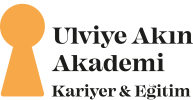Learning Disability (Dyslexia-Dysgraphia-Dyscalculia)

Learning disability is the difficulties in one or more of the basic psychological processes that include understanding or using verbal or written language, and the disruptions in listening, thinking, speaking, reading, writing, spelling or mathematical calculations due to these difficulties. Applications are made with programs developed within the framework of the national scientific-based Turkish language. In this context, ZOBEP (Enriched Reading Skills Program) and bosturkiye (cognitive reading and learning program) are the only authorized academic consultancy applied in our country. They can make significant progress with my digital programs from many provinces of Turkey and abroad (including Turkish families living in England, Germany, Belgium, America, Russia).
Dyslexia: It is a genetic-based neurodevelopmental reading disability characterized by problems in reading, decoding and spelling at the word level and problems in oral reading fluency despite age, appropriate intelligence level, educational opportunities and sufficient listening comprehension skills.
Dyscalculia: It manifests itself as the failure to demonstrate the expected performance for age in number perception, memorization of arithmetic facts, accurate and fluent calculation, and accurate numerical processing skills.
Dysgraphia: It is the failure to demonstrate the expected development for age in terms of letter pronunciation/writing accuracy, grammar and punctuation accuracy, and clarity or order of written expression.
Since ADHD can be observed in 40% of children with learning disabilities (Barkley, 2006), teacher observations and interviews can support the determination of which diagnosis is primary or secondary and the making of this distinction. The most difficult situation to detect is the distinction between children with low achievement and children with learning disabilities. It is recommended that these children not be diagnosed with learning disabilities unless it is proven that they have difficulties in cognitive processes. In this context, it is important for families, teachers, and students to follow and observe their social processes and classroom behaviors.
Including families of children with dyslexia and attention deficit in education is to increase their quality of life.”
Dr. Ulviye Akın
